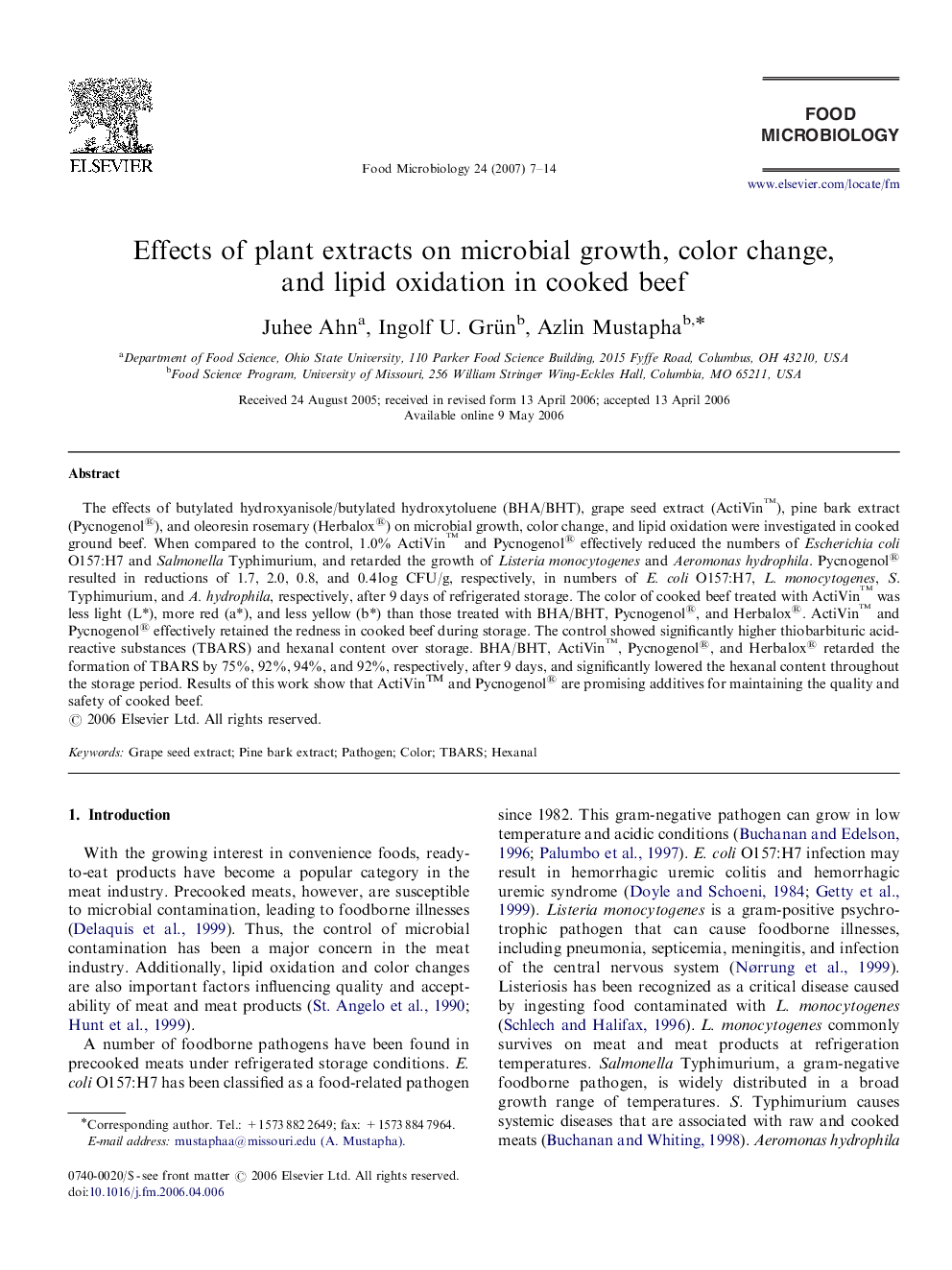| Article ID | Journal | Published Year | Pages | File Type |
|---|---|---|---|---|
| 4363907 | Food Microbiology | 2007 | 8 Pages |
The effects of butylated hydroxyanisole/butylated hydroxytoluene (BHA/BHT), grape seed extract (ActiVin™), pine bark extract (Pycnogenol®), and oleoresin rosemary (Herbalox®) on microbial growth, color change, and lipid oxidation were investigated in cooked ground beef. When compared to the control, 1.0% ActiVin™ and Pycnogenol® effectively reduced the numbers of Escherichia coli O157:H7 and Salmonella Typhimurium, and retarded the growth of Listeria monocytogenes and Aeromonas hydrophila. Pycnogenol® resulted in reductions of 1.7, 2.0, 0.8, and 0.4 log CFU/g, respectively, in numbers of E. coli O157:H7, L. monocytogenes, S. Typhimurium, and A. hydrophila, respectively, after 9 days of refrigerated storage. The color of cooked beef treated with ActiVin™ was less light (L*), more red (a*), and less yellow (b*) than those treated with BHA/BHT, Pycnogenol®, and Herbalox®. ActiVin™ and Pycnogenol® effectively retained the redness in cooked beef during storage. The control showed significantly higher thiobarbituric acid-reactive substances (TBARS) and hexanal content over storage. BHA/BHT, ActiVin™, Pycnogenol®, and Herbalox® retarded the formation of TBARS by 75%, 92%, 94%, and 92%, respectively, after 9 days, and significantly lowered the hexanal content throughout the storage period. Results of this work show that ActiVin™ and Pycnogenol® are promising additives for maintaining the quality and safety of cooked beef.
